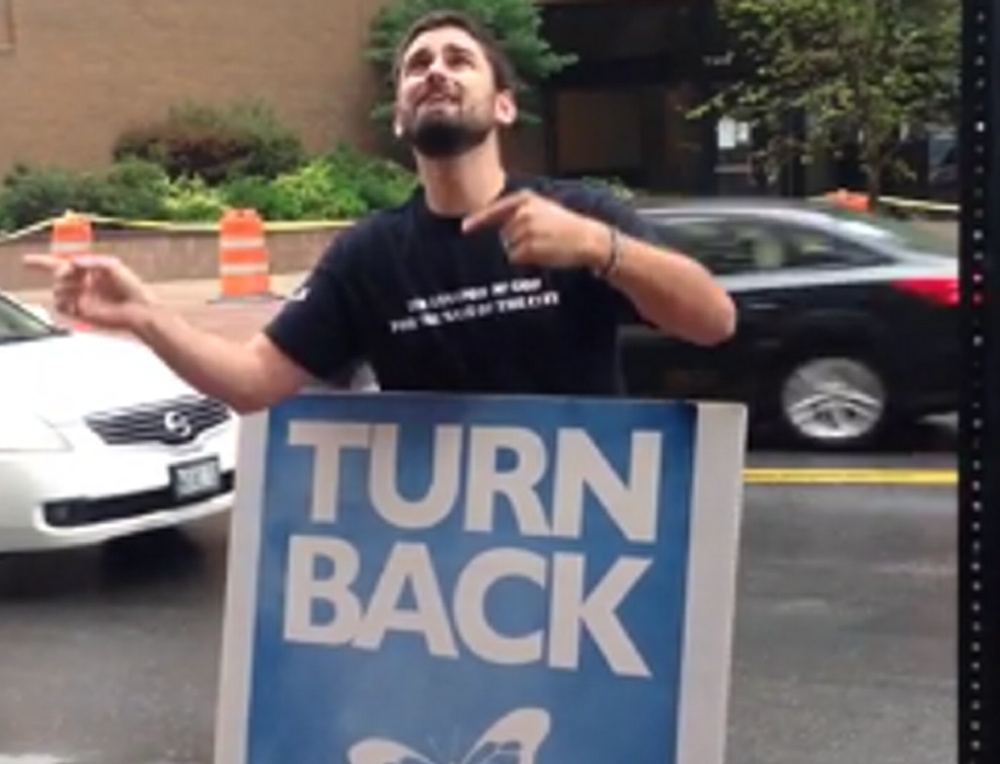A federal appeals court has ruled that Maine can enforce a law that bars protests that are intentionally loud enough to be heard inside a building.
Last year, a U.S. District Court judge in Portland sided with an ally of an anti-abortion protester who had been shouting outside a Planned Parenthood clinic in Portland, saying that Portland police and state officials could not enforce a provision in state law that protects people who are getting health care services from noisy disturbances.
On Tuesday, the 1st U.S. Circuit Court of Appeals disagreed, saying the law was “content-neutral,” meaning it targeted the noisiness of a protest and did not distinguish between protesters based on their positions on an issue.
“I’m a big defender of free speech, but this law protects people’s rights to free speech while also protecting the rights of everyone to access health care without disruption,” said Maine Attorney General Janet Mills.
“The First Amendment protects the power of speech. It doesn’t protect the power of screech,” said Leanne Robbin, one of the Maine assistant attorneys general who argued the appeal before the Boston-based court.
The case dates back to loud anti-abortion protests outside the clinic near Monument Square in 2015.
The state sought to enforce the loud-protest provision against Brian Ingalls, a member of a church known as Cell 53, which is based in Lewiston.
Robbin said Ingalls was particularly vehement in his protests and would yell at patients inside the clinic if he saw them in a window. He shouted about murdering babies, aborted babies’ blood and Jesus so loudly that he could be heard inside the building, disrupting examinations and patients’ meetings with doctors, the state said in seeking an injunction against Ingalls under the Maine Civil Rights Act.
“He not only got up on his soapbox, he was literally screaming,” Robbin said.
After the state filed the lawsuit seeking an injunction against Ingalls’ loud protests, another member of Cell 53, Andrew March, filed a counterclaim, arguing that the loud-protest provision was an unconstitutional infringement on protesters’ free speech rights. The attempt to get an injunction against Ingalls has been on hold in state court since March went to federal court and got a preliminary injunction against enforcement of the law.
In granting the federal injunction, U.S. District Chief Judge Nancy Torresen determined that March was likely to be successful in his challenge to the constitutionality of the state law.
The state then appealed that ruling to the higher federal court, which disagreed with Torresen in its ruling issued Tuesday.
“The Noise Provision was the product of a careful legislative process,” the unanimous decision by three appeals court judges said. “That process sought to forge a consensus among many competing interests in order to address what all parties to this dispute agree is a serious concern regarding the health and safety of those seeking health services.”
The judges said the law could be used equally against protesters on all sides of an issue and therefore wasn’t an unconstitutional restriction of free speech aimed only at one side. As a result, the court said, March is unlikely to prevail in his challenge of the Maine law, so the preliminary injunction against enforcement was ordered lifted.
Robbin said state officials will now head back to state court to get the injunction against Ingalls’ yelling at the clinic reinstated. She said once that injunction is in place, Ingalls will be warned and then arrested if he continues to yell loudly enough to disrupt patients’ care at the clinic.
Robbin said the ruling does not affect whether anti-abortion groups can try to persuade those going to the clinic against getting abortions or other health care services from Planned Parenthood. The city adopted a 39-foot buffer zone around the clinic in 2013, but repealed it the next year after the U.S. Supreme Court rejected a similar buffer zone around a clinic in Massachusetts. Protesters are allowed to demonstrate at the entrance to the clinic, but cannot physically bar access or repeatedly harass an individual, Robbin said.
“They get their chance to get out their message there,” she said.
However, once a person is inside the clinic, it should be seen as “a sanctuary,” Robbin said. “There should not be anybody else in the room” other than patients and health care providers even when that presence is in the form of a loud voice.
Attempts to reach Ingalls and March were unsuccessful Tuesday evening. Another pastor at their church responded to an email request for comment by directing inquiries to Kate Oliveri, a lawyer with the Thomas More Law Center in Michigan, which says its mission is to “restore and defend America’s Judeo-Christian heritage and moral values.” Oliveri did not immediately respond to an email seeking comment.
Send questions/comments to the editors.




Success. Please wait for the page to reload. If the page does not reload within 5 seconds, please refresh the page.
Enter your email and password to access comments.
Hi, to comment on stories you must . This profile is in addition to your subscription and website login.
Already have a commenting profile? .
Invalid username/password.
Please check your email to confirm and complete your registration.
Only subscribers are eligible to post comments. Please subscribe or login first for digital access. Here’s why.
Use the form below to reset your password. When you've submitted your account email, we will send an email with a reset code.